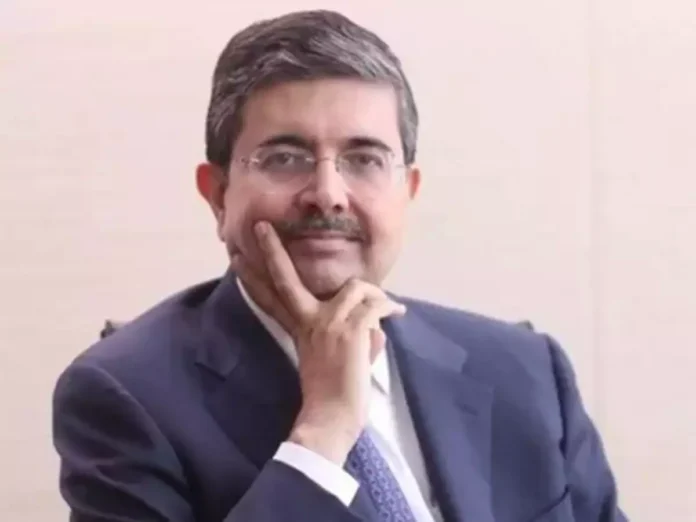Shun protectionism is the key recommendation from Uday Kotak as he unveiled his 10-point action plan for India’s progress in 2025. A renowned entrepreneur and financial expert, Kotak emphasized the necessity of open markets and global competitiveness for sustainable economic growth. Highlighting the drawbacks of protectionism, he described it as a temporary solution that ultimately hampers long-term innovation and economic expansion. His vision for India at 77 revolves around enterprise, productivity, and inclusive growth, making his message not just timely but transformative.
Key Points Of The Action Plan
Uday Kotak’s action plan outlines 10 core objectives, starting with the need to “Go for growth” by reigniting entrepreneurial spirit and productivity. He urged India to embrace a results-driven mindset, summarized by the term “ROTI” or “Return on Time Invested.” The focus, according to Kotak, should be on relentlessly increasing productivity and ensuring that efforts yield measurable results.
The third and arguably most controversial point was to shun protectionism. Kotak believes that while shielding domestic industries from foreign competition may provide short-term relief, it makes the economy less competitive in the global arena over time. “We need to walk the path of openness and innovation to truly thrive,” he asserted.
Economic Implications Of Shunning Protectionism
Protectionism often entails tariffs, import restrictions, and subsidies that discourage competition. While these measures may protect domestic industries temporarily, they also deter foreign investment and stifle innovation. Kotak’s call to shun protectionism aligns with global economic principles, emphasizing the benefits of free trade and market-driven policies. By removing trade barriers, India could attract greater foreign investment, drive technological advancements, and achieve higher economic efficiency.
In his address, Kotak highlighted that India’s current account deficit also needs urgent attention. He proposed a concrete plan to eliminate the deficit within a reasonable timeframe, suggesting that fiscal prudence and export promotion must be prioritized.
Increased Investment In Defence And Infrastructure
Another significant point in Kotak’s plan is the emphasis on defense and infrastructure investment. Referring to defense as a symbol of national power, Kotak stressed that safety is a prerequisite for prosperity. Robust infrastructure, coupled with strong national defense, lays the foundation for a resilient economy capable of weathering global uncertainties.
India’s expanding defense budget reflects this sentiment, with increased allocations aimed at bolstering security and encouraging domestic manufacturing of defense equipment. Kotak’s vision ties these efforts to long-term economic stability, suggesting that such investments not only safeguard the nation but also generate jobs and technological advancements.
Tackling Environmental Challenges
One of the most pressing issues Kotak addressed was the need to move away from being among the world’s most polluted countries. Environmental degradation is not only a health crisis but also a severe economic liability, affecting workforce productivity and healthcare costs. Kotak’s call for environmental sustainability underscores the importance of balancing industrial growth with ecological responsibility.
India’s urban centers, plagued by pollution and poor waste management, must adopt greener practices to ensure sustainable growth. Clean energy, efficient public transport, and waste reduction strategies are some steps that could align with Kotak’s vision.
Ensuring Fair Markets And Avoiding Overregulation
Another critical recommendation from Kotak was to respect free markets and intervene only when evidence of manipulation or financial bubbles exists. He advocated for minimal overregulation, cautioning against micromanagement across sectors. According to him, a “zero-accident policy” in economic governance may sound ideal but carries the risk of stifling growth.
This point is particularly relevant in sectors like technology and e-commerce, where overregulation could deter innovation and foreign investment. By ensuring fair and competitive markets, India can foster an ecosystem conducive to entrepreneurship and growth.
Empowering India’s 1.4 Billion People
Kotak concluded his plan by highlighting the potential of India’s 1.4 billion population. He encouraged policies that allow diverse ideas and enterprises to flourish, fostering innovation and inclusivity. The emphasis on “letting many flowers bloom” reflects his belief in empowering individuals and communities to drive the country’s progress collectively.
Public And Expert Reactions
The response to Kotak’s action plan has been overwhelmingly positive, with business leaders and economists praising his forward-thinking approach. Many see his recommendations as a roadmap for achieving India’s ambitious $5 trillion economy target. Critics, however, argue that implementing such reforms requires political will and coordinated efforts across multiple sectors.
As India enters 2025, Uday Kotak’s vision offers a clear and actionable framework to tackle the challenges ahead. His emphasis on shunning protectionism, boosting investments, and fostering innovation provides a balanced approach to achieving sustainable growth in a rapidly changing global landscape.



